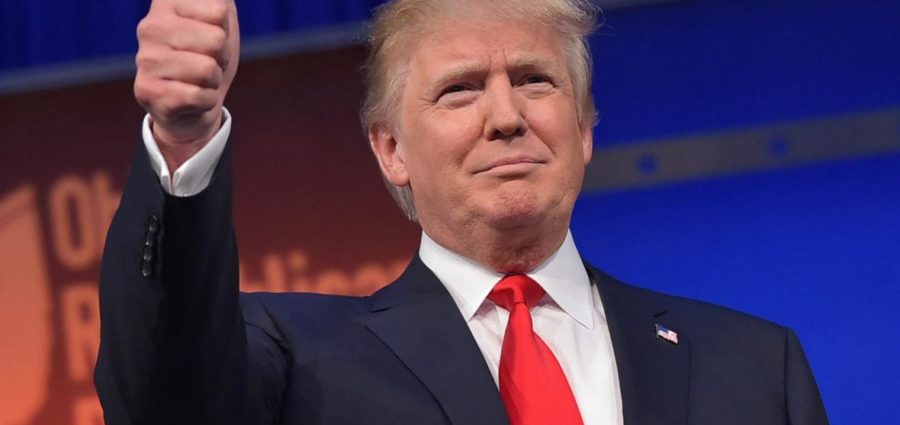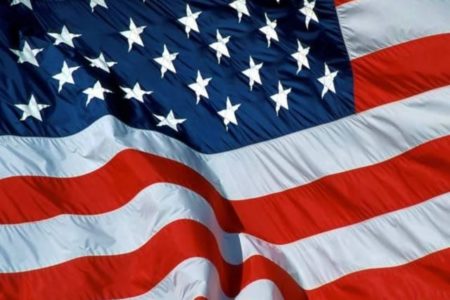Investors are drooling with anticipation that the coming Trump regime through lowering taxes, removing regulatory barriers and stimulating economic growth will continue to boost the stock market. As a bonus, there is the prospect of repatriation to their corporate owners of trillions of corporate dollars that are “trapped” abroad by American taxes. According to one recent forecast, US corporations hold some $2.5 trillion abroad.
All of these “trapped dollars” are presumably waiting for a more favorable US tax regime for repatriation to the US. The top five companies with the largest overseas trapped dollars are Apple (AAPL), Microsoft (MSFT), Alphabet (GOOG), Cisco (CSCO) and Oracle (ORCL). All tech companies.
President-elect Trump may be doing some drooling of his own. But given the way he is bullying auto companies to keep their manufacturing in the United States, is it not reasonable to worry that he may want to dictate how corporations spend their repatriated loot? Are these repatriated funds in fact a “poison chalice”?
Most of the companies which will benefit from repatriated capital do not need the money. As a group they are free cash flow positive and already have plenty of funds to be spending on R&D and capital projects. Unlike the auto companies, a significant number are software companies which do not run capital intensive operations. Most economists would automatically argue that, if these companies cannot spend their repatriated funds on projects that are at least equal to their cost of capital, they should in turn repatriate these funds to their owner investors via dividends and share buybacks. Investors in turn could be expected to recycle these funds into new ventures and IPOs which have higher expected returns. That would be economic/capital markets efficiency at its finest.
It so happens there is reportedly a big queue of large companies planning IPOs for 2017. Some names that have been bandied about include major American unicorns like Snap, Palantir, Pinterest, and even Uber. Recycling the trapped cash hoards into these new names makes a lot of economic sense.
But a populist President Trump may have other ideas. He may want the companies with the trapped cash themselves to invest directly in American assets. That will make for a good tweet. This idea that share buybacks and dividends will be recycled more efficiently in new ventures and IPOs may not be compatible with a more simplistic populist message. Too invisible. Too trickle down. Too friendly to the fat cats.
Of course CEOs armed with extra cash have been known to indulge in empire building. And some of the (only recently) mature tech companies with their high- testosterone, still-youthful founders may view dividends with disdain since dividends would be sending a message that their companies have reached some kind of premature corporate dotage. So don’t expect too much resistance if Trump does lean on managements. “The capitalists will sell us the rope by which to hang them” Vladimir Lenin once said and there is no reason to think American capitalists are any different.
One thing that is likely to result from any significant capital repatriation—a wave of acquisitions by the recipient companies. Investors will be spending more time looking for acquisition candidates. Wall Street will rejoice. One would expect various small to mid-sized tech companies to see their stock prices getting bid up starting now.
Caudillo Capitalism US Style
Millions of Americans voted for Trump because they looked forward to his rolling back the tsunami of taxes and regulations that were unleashed in the Obama years. Such expectations are sending the stock market higher. They are something to get excited about. But Trump supporters and the stock market have chosen to ignore Trump’s protectionist/populist “dark side”. Their assumption is that, like the legendary King Canute who supposedly commanded the ocean to recede, Trump’s protectionist/populist instincts will crash on the realities of a global economy that is being driven by an ever-accelerating technology. Or – better yet – perhaps he did not mean most of it in the first place. But there should be no gainsaying that, as President of the United States, he can do substantial short term damage if he tries. And so far most of what we have seen from the President-elect is his dark side.
Trump in some quarters is already being called a “caudillo capitalist.” “Caudillo”, for those readers who have been too busy studying coding and Mandarin, is Spanish for “strongman”. Trump’s bully tweets don’t appear to be based on any serious economic analysis but on the force of his super forceful personality and his protectionist instincts. Thus manufacturing companies like Ford have cancelled plans to build factories in Mexico. This American caudillo has not even taken office and he is already dictating industrial policy.
As an economist I just can’t buy this. In the short term Trump saved some American jobs. But the plant in Mexico would have built cheaper cars. The American worker will be paying more for Fords than if the cars were built in Mexico. And maybe Ford has taken a step backward in the competitive global auto sector. You can bet that Ford will do all it can to bring on robots to automate its higher cost US plants.
Mexico itself has made a lot of progress and its once high birth rate has declined. But Mexicans need jobs too and geography has made the US and Mexico partners. Trump should remember the US has a choice. Import Mexican products or import Mexicans.
Apple – For Trump a Low Hanging Fruit?
Apple is the primary creator of the smartphone and today is in many ways America’s most iconic company. Its founder, the late Steve Jobs, still casts a giant footprint across the global business landscape. But President Trump may not see Apple in the same adoring fashion that the stock market or the typical business school professor does. Problem one: Apple manufactures very little in the United States. Problem two: it has a trapped overseas fund hoard (after netting out US borrowings) of at least $150 billion.
It might be worth reviewing Apple’s manufacturing process for its iPhone. This is not a simple process since its numerous components come from countries all around the world. The process is in fact a marvel of global manufacturing, American ingenuity and supply chain management. Trump should be coming into office to praise Apple, not to bury it. He wants to make America great again. Well this US based global corporation is already great.
The iPhone’s components are assembled by two Taiwanese companies, Foxconn (2354.TW) and Pegatron (4938.TW) These companies in turn have the bulk of their factories in China where lower wages make them more than competitive with higher paid American workers. Moving production to the US thus far has made no economic sense. Steve Jobs convinced President Obama of that. (Obama might have been an easier sell than Trump.) Of course economic reality can change. Foxconn has been busily replacing its increasingly costly Chinese workers with robots. One headline in the tech blog The Verge says that Foxconn wants to replace almost all its human workers. Reportedly Foxconn has been investigating whether moving its assembly operations to the US makes any sense.
But the story is more complicated. The iPhone chip’s current processor or brain (technically system on a chip) is designed by Apple using an architecture developed by the British firm ARM. ARM has just been bought by Softbank, headed by Japan’s Masayoshi Son. Masa, as Trump affectionately calls him, has made the pilgrimage to The Tower and has promised to invest $50 billion in the United States and create 50,000 jobs. (Masayoshi Son is Japanese but his parents were Korean and his grandparents were Chinese. Trump gets a major slice of Asia here.) Since Apple manufactures very little itself and in industry jargon is fabless, the chips which currently go into the iPhone are fabricated by Samsung (005930.KS) and Taiwan Semiconductor (TSM). Fabless chip production is a widespread industry practice. Invidia (NVDA) and Qualcomm (QCOM) for example are fabless while of the majors only Intel (INTC) has its own fabs.
So with a President Trump Apple may have a problem. Assuming the Trump gets taxes reformed and Apple brings its foreign loot home, what is Apple going to do with the extra money? I would again argue its shareholders are best served with extraordinary dividends and share buybacks. Okay, if the robots can do the assembly job, perhaps Apple could move some assembly back to the US. Maybe in the future but that does not seem like a decision based on economics right now. Business decisions based on political criteria are usually bad ideas.
Trump the Caudillo hovers over Apple’s capital allocation process. Apple in theory could be pressured into vertically integrating and opening assembly and chip producing plants in the US. Perhaps robots could make US iPhone assembly feasible someday. But for Apple to get into the chip fabrication business would absorb enormous amounts of financial, management and human capital and take years. It would be a huge negative for the stock and probably take Apple out of the smartphone business. Hopefully this will never happen.
Another alternative is for Apple use its repatriated money to get directly into the car business. Apple is a highly secretive company but supposedly it has devoted resources to developing a driverless car. Most analysts think Tesla (TSLA) will likely need more funding. Some have speculated Apple should buy Tesla. One can imagine scenarios where that might make sense. But what if Tesla doesn’t want to sell? The upscale auto companies that Apple probably would want to buy are all foreign. Whoops! Can’t do that.
I have high hopes for the major economic thrust of the Trump Presidency. But Caudillo Capitalism is one thing America does not need. Let the companies and the markets make their own capital allocation decisions, not the tweeting President. In the long run American workers and shareholders will be better off. If he does what he has promised, Trump will be able take credit for lowering energy, tax and regulatory costs. With the help of ever smarter robots and no tweets, manufacturing will come back to the US.








